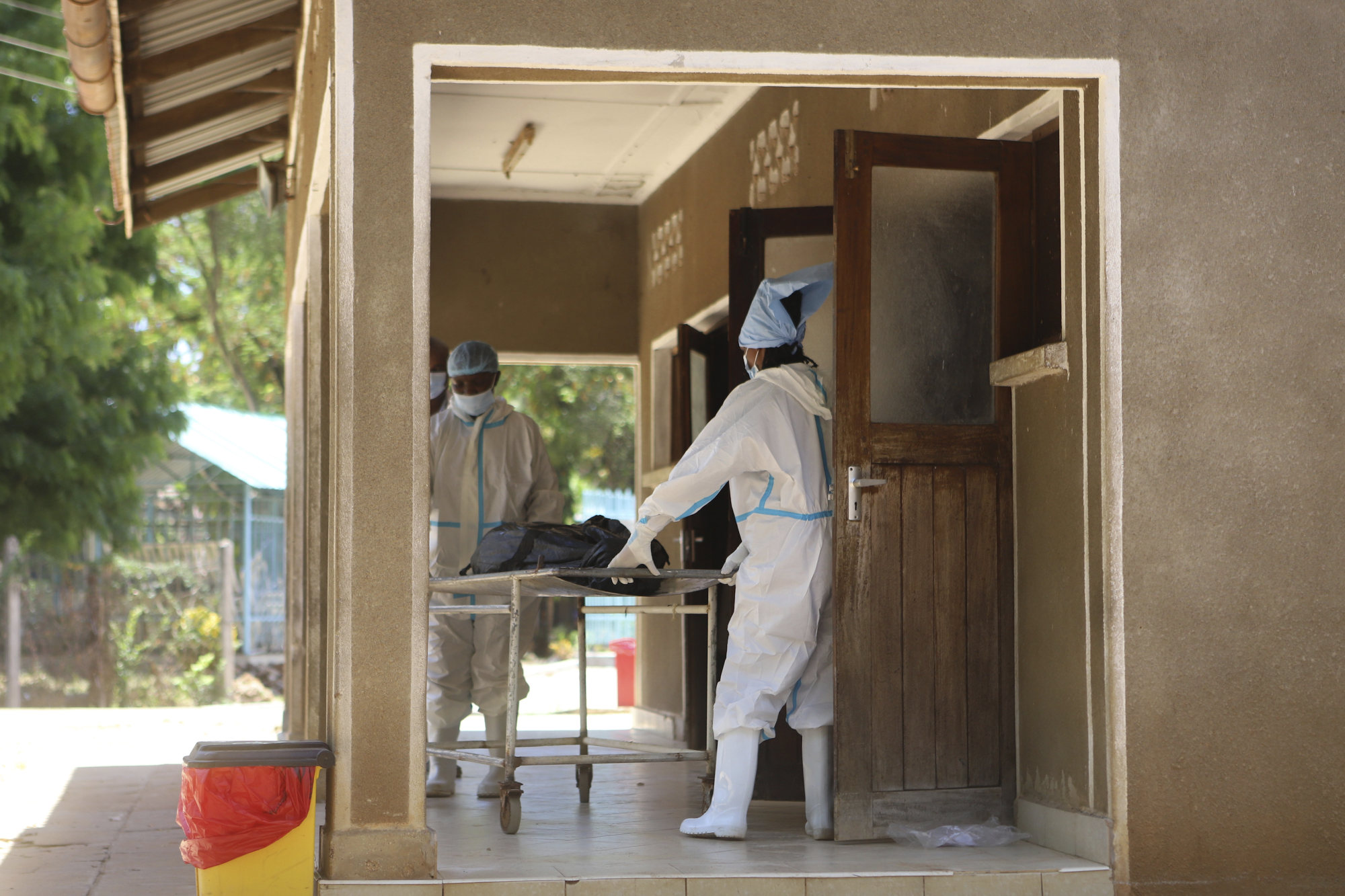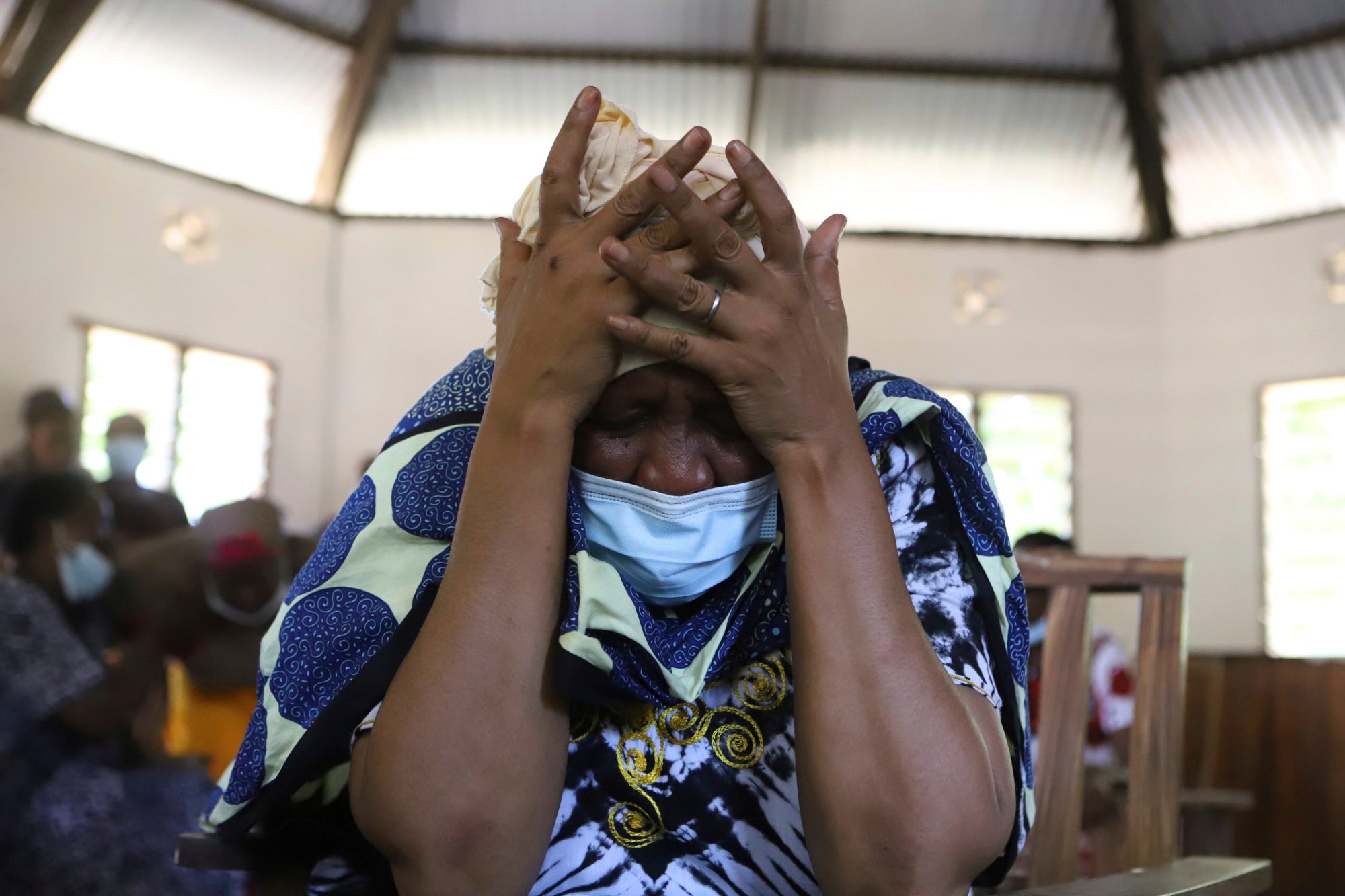
Families shed tears of relief as first Kenya cult massacre bodies released
- Kenyan authorities are releasing the bodies of victims of a doomsday starvation cult to distraught relatives, almost a year since the discovery of mass graves
- DNA identification has been slow, with just 34 of the 429 bodies exhumed between April and October last year positively identified through DNA profiling
Kenyan authorities on Tuesday began releasing the bodies of victims of a doomsday starvation cult to distraught relatives, almost a year since the discovery of mass graves in a grisly case that shocked the world.
One tearful family received four bodies that were loaded into a hearse from a morgue in the Indian Ocean town of Malindi, an AFP correspondent at the scene said.
They are the first bodies to be handed over to their relatives for burial after months of painstaking work to identify them using DNA.

“It is a relief that we finally have the bodies but it is also disheartening that they are only skeletons,” William Ponda, 32, told AFP, saying he has lost his mother, brother, sister-in-law and nephew in the tragedy.
“I do not have any hope that we will find the other members of the family.”
Hundreds of bodies, including those of children, have been dug up from the shallow mass graves discovered in April last year in a remote wilderness inland from Malindi.
Self-proclaimed pastor Paul Nthenge Mackenzie is alleged to have incited his followers to starve to death to “meet Jesus” in what has been dubbed the “Shakahola forest massacre”.
Kenya cult leader charged with murdering 191 kids in Shakahola forest massacre
The former taxi driver turned messiah has pleaded not guilty to 191 counts of murder, manslaughter and terrorism. He has also been charged with child torture and cruelty.
So far, 34 of the 429 bodies exhumed between April and October last year have been positively identified through DNA profiling.
While starvation caused many deaths, some of the bodies, including of children, showed signs of death by asphyxiation, strangulation or bludgeoning, according to government autopsies.
Families have had to endure a painful wait for the bodies of their loved-ones after the DNA profiling was delayed by lack of reagents and equipment.

Roseline Odede, chair of the state-backed Kenya National Commission on Human Rights, lamented the slow process of identifying the victims and the release of the bodies.
“There are 390 plus bodies yet to be identified positively. Going at this rate we are going to be here for 10 years,” she told reporters in Malindi.
“The government must intentionally commit resources towards this process so that we are able to give closure to families.”
Last week the KNCHR accused security officers in Malindi of “gross abdication of duty and negligence”.
“They not only failed to be proactive in collecting and acting on intelligence to forestall the Shakahola massacre but also unjustifiably failed to act on credible and actionable reports,” Odede said at the time.
Death toll in Kenya starvation cult exceeds 200 as authorities unearth 22 more bodies
Chief government pathologist Johansen Oduor said the identification process was slow because most of the families have not been coming to claim the bodies, posing a challenge to obtain DNA samples.
Oduor said Monday that at least 35 other mass graves have been identified in Shakahola and further exhumations set to begin soon could drive up the overall death toll.
A homicide officer from the Directorate of Criminal Investigations told AFP it was up to relatives to make their own burial arrangements.
Questions have been raised about how Mackenzie, a father of seven, managed to evade law enforcement despite a history of extremism and clashes with the law.
The case also led the government to flag the need for tighter control of fringe denominations.
A devout largely Christian nation, Kenya has struggled to regulate unscrupulous churches and cults that dabble in criminality.
Kenya’s interior minister has said the authorities will convert Shakahola forest into a national memorial site.

.png?itok=arIb17P0)